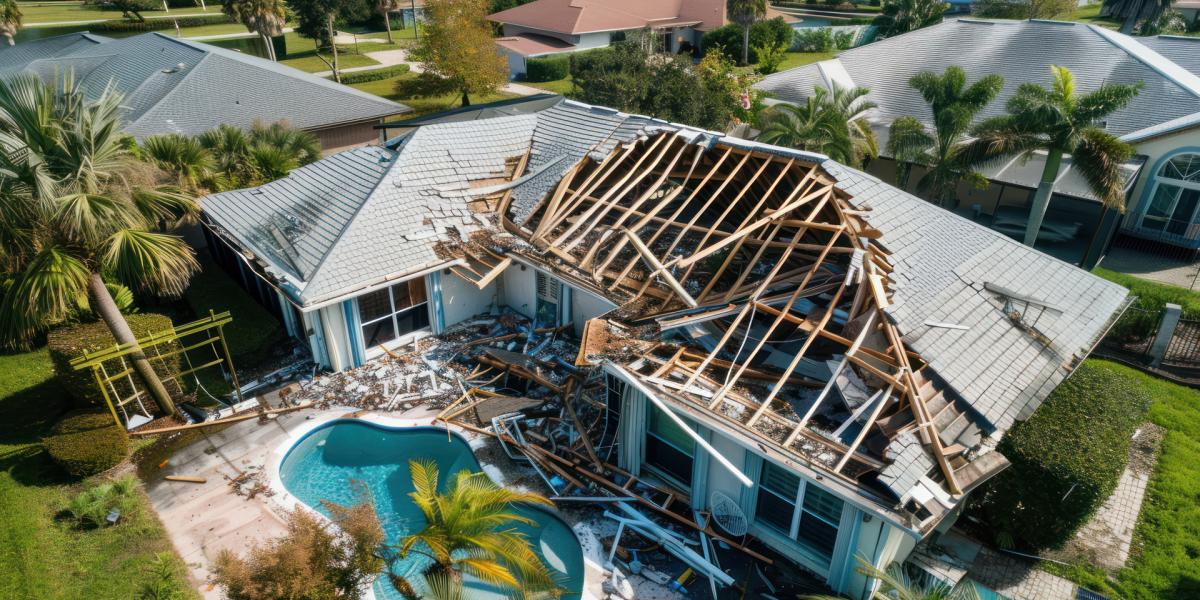Unveiling the Pyramid Scheme Behind Home Insurance
The insurance industry, particularly in hurricane-prone regions, epitomizes a coercive system backed by government regulations that often serves to entrap rather than protect homeowners. As hurricanes have wreaked havoc in recent weeks, the failings of these insurance companies have come under scrutiny, revealing an exploitative pyramid scheme that benefits a small group at the expense of many. Homeowners are compelled by local building codes, mortgage requirements, and zoning regulations to purchase insurance, which creates a captive market. This compelling necessity for coverage means that individuals often buy products they do not desire or feel they need. The insurance companies, capitalizing on this enforced obligation, are able to set unnaturally high premiums, taking advantage of the limited options available to homeowners in times of crisis. This situation exemplifies how governmental policies can infringe on personal freedoms while reinforcing profit-driven monopolies.
Insurance companies promise financial security in the face of disasters; however, their actions reveal a troubling pattern of denying or delaying claims when catastrophe strikes. This persistent issue is not merely a result of unfortunate circumstances but is a fundamental flaw in the business model of the insurance industry. The concept of pooled risk, while theoretically sound for minor incidents, falters during extreme events like hurricanes. With the risk they assess as being inherently high, insurance companies may arbitrarily drop policyholders during critical periods and refuse to provide new policies or expand coverage limits. Such actions leave long-standing customers who have dutifully paid premiums without any form of protection just when they need it the most.
In the aftermath of disasters, many insurance companies turn to the government for monetary assistance or regulatory relief instead of addressing the needs of their policyholders. This creates a cyclical problem where the companies reap substantial profits from the premiums collected but then face financial strain when claims spike after a natural disaster. Insurers benefit from the premiums paid by homeowners, but often these payouts are constrained by high deductibles and fees. Consequently, policyholders are frequently left burdened with high out-of-pocket costs that are not adequately covered by their insurance plans, which leads to a significant disconnect between what homeowners expect and what they receive.
The mandatory nature of home insurance in disaster-prone areas raises serious ethical questions about individual freedom and market dynamics. The coercion to purchase insurance strips homeowners of their autonomy to make informed choices regarding their own risk management strategies. Furthermore, with a limited number of providers operating in a captive market, insurance companies can dictate prices without fear of competition, causing financial strain on homeowners. In many instances, these companies prioritize profitability over the best interests of their clients. When disasters occur, policyholders often experience slow processing of their claims or receive inadequate compensation.
Addressing this systemic issue requires dismantling the entrenched pyramid scheme that characterizes the current insurance industry. By promoting individual freedom and introducing competition to the market, homeowners could be given the option to self-insure or explore alternative strategies for managing their risks. Eliminating the pervasive government-backed monopolies would enable multiple insurance providers to enter the market, fostering healthy competition that could lead to more reasonable pricing structures and better service quality. This change could ultimately empower homeowners to make informed choices rather than forcing them into compliance with a broken system.
As destructive storms become more frequent and severe, it’s crucial to reevaluate the role of insurance within these communities and recognize it for what it truly is: a scheme that leverages the vulnerabilities of homeowners for profit. By advocating for greater transparency and accountability within the insurance landscape, individuals can regain agency in managing their own risks. A reformed system that reflects these ideals would not only serve to protect homeowners more effectively but would also dismantle the tendencies toward exploitation inherent in the current insurance model, leading to a more ethical and sustainable approach to risk management.
Share this content:












Post Comment